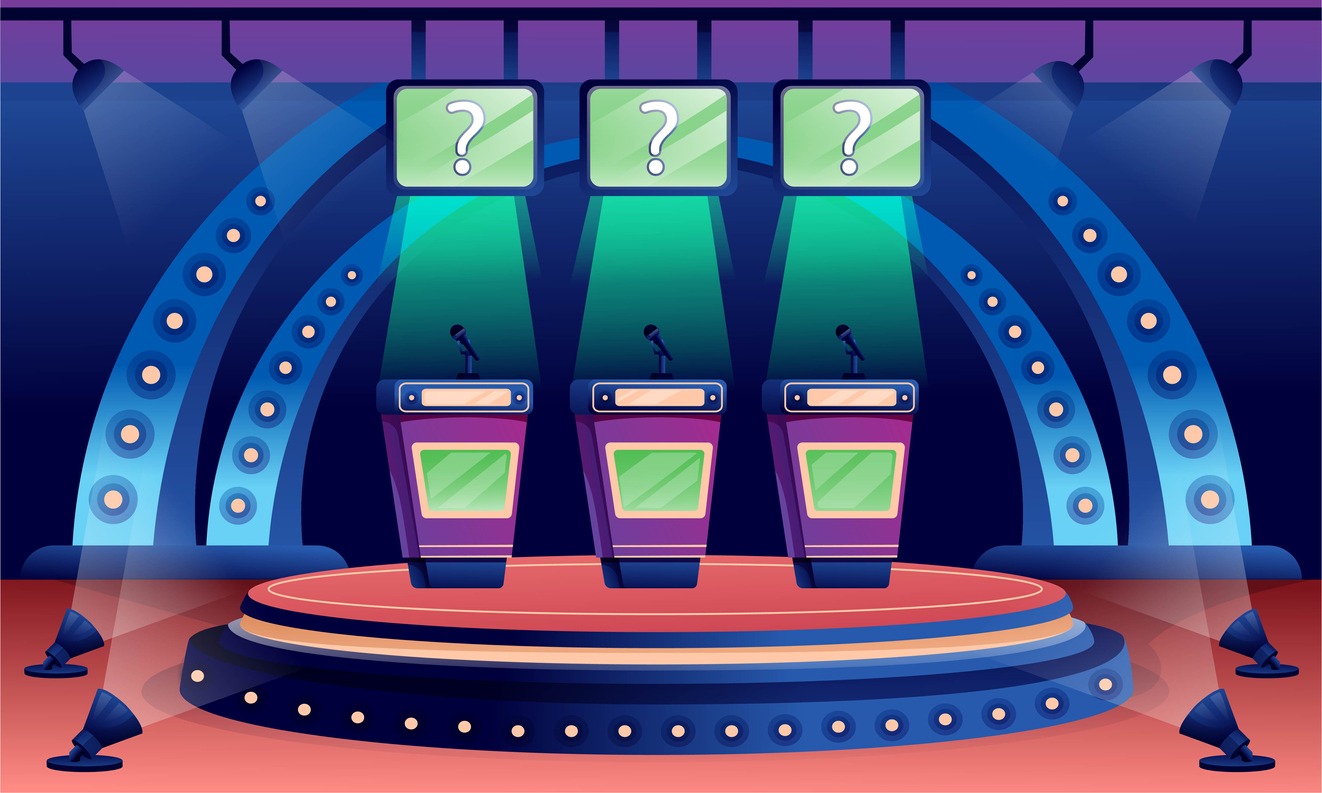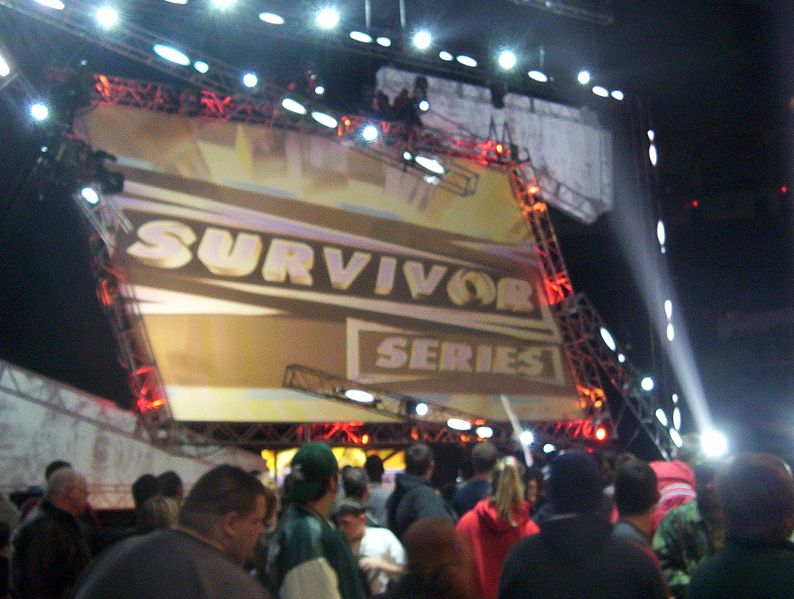In the 2000s, TV was full of game shows that caught everyone’s attention. These shows were not just about winning money or prizes; they were about fun, excitement, and sometimes even facing fears. People from all over would sit in front of their TVs to cheer on the contestants, laugh at the funny moments, and get surprised by the unexpected turns. These game shows became a big part of what people talked about with friends and family.
Each game show had something special about it. Some made you think really hard to answer questions. Others were about taking big risks for big rewards. Then, there were shows that tested how brave people could be by making them face scary challenges. All these different types of shows made the 2000s a great time for game show lovers. Now, let’s look back and remember some of the most loved game shows from that time.
Who Wants to Be a Millionaire?
Who Wants to Be a Millionaire?” was a big hit in the 2000s. It was a quiz show where players answered questions to win money. The questions got harder as the money went up, making it very exciting. Players had three help they could use if they got stuck.
The show was famous for its tense moments, especially when the host asked, “Is that your final answer?” People loved watching because they could guess at home, and the big prize of a million dollars made it super thrilling. This show was so popular that many people still remember its music and the way it made them feel on the edge of their seats.
Deal or No Deal
“Deal or No Deal” was a thrilling game show that kept viewers glued to their screens in the 2000s. Hosted with charm and suspense, the show featured contestants picking one of several briefcases, each containing a different amount of money, but without knowing the amounts inside. The real excitement came as they had to decide whether to keep their chosen case or make a deal with the mysterious “banker” for a certain amount of money based on the values remaining in play.
With no questions asked or tasks to perform, the game was all about luck, strategy, and nerve. The catchphrase “Deal or No Deal?” echoed in living rooms as audiences watched contestants navigate the high-stakes dilemma, making it a staple of 2000s television.
Fear Factor
“Fear Factor” was a game show unlike any other in the 2000s, known for pushing contestants to their limits. The show challenged participants to confront their deepest fears through a series of daring and often stomach-turning stunts. These challenges ranged from extreme physical feats to encountering creepy crawlies and even eating bizarre and gross-out items. The idea was to test not just bravery but mental toughness and endurance.
Hosted with a blend of encouragement and suspense, “Fear Factor” captivated viewers who were equally horrified and fascinated, making it a topic of conversation for its shock value and the awe-inspiring courage of its contestants. It was a show that truly embodied the saying, “Fear is not a factor for you!”
Survivor
“Survivor” took the 2000s by storm with its unique blend of adventure, strategy, and human drama. Set in remote and exotic locations, this reality competition show stranded a group of contestants, or “castaways,” who had to work together to survive in harsh conditions while also competing in challenges for rewards and immunity from elimination. The twist of forming alliances and the strategic voting at the Tribal Council added layers of intrigue, as players had to balance teamwork with individual cunning to avoid being voted off.
“Survivor” captivated viewers with its scenic backdrops, unpredictable gameplay, and the social dynamics of forming and betraying alliances, making it more than just a game show—it was a study of human nature and a test of resilience, making it a defining show of the 2000s.
The Weakest Link
“The Weakest Link” stood out in the 2000s for its distinctive format and the stern demeanor of its host, famously known for the catchphrase, “You are the weakest link, goodbye.” In this quiz show, contestants worked as a team to accumulate prize money by answering a chain of general knowledge questions. However, after each round, they voted to eliminate the perceived least knowledgeable or weakest member, adding a layer of social strategy to the game.
The show’s appeal lay in the tension between teamwork and individual survival, as players balanced cooperation with personal advancement. The host’s direct and often sharp comments added to the drama, making “The Weakest Link” a memorable mix of intellect, competition, and entertainment.
Are You Smarter Than a 5th Grader?
“Are You Smarter Than a 5th Grader?” was a delightful and somewhat humbling game show that premiered in the 2000s, charming viewers with its unique premise. The show tested adult contestants on their knowledge of subjects typically taught in elementary school, from math and science to history and English. The twist? They were assisted by a panel of actual fifth-grade students, highlighting the often surprising gaps in adults’ knowledge of basic subjects.
Hosted with a friendly and humorous tone, the show not only entertained but also offered a fun, educational experience, reminding viewers of the importance and depth of elementary education. The catchphrase, “I am not smarter than a 5th grader,” became a lighthearted admission for many humbled contestants, making the show a cultural touchstone of the 2000s.
Big Brother
“Big Brother” captivated audiences in the 2000s with its innovative reality TV format, where contestants, known as housemates, lived together in a specially constructed house isolated from the outside world. The show was a social experiment of sorts, with cameras and microphones capturing every moment of the housemates’ lives, 24/7. Each week, housemates nominated each other for eviction, and the public voted to determine who would leave.
The intrigue of “Big Brother” lay in the complex social dynamics, alliances, and betrayals that developed among the contestants. Viewers were drawn to the genuine human interactions, emotional highs and lows, and the strategic gameplay that unfolded in the confined setting. The phrase “Expect the unexpected,” often associated with the show, perfectly encapsulated the unpredictable nature of “Big Brother,” making it a standout hit of the 2000s.
Conclusion
These game shows from the 2000s brought lots of fun, surprises, and excitement to our TV screens. They made us laugh, cheer, and sometimes even shout at the TV. From answering tough quiz questions to facing wild challenges, these shows had something for everyone. They remind us of good times spent with family and friends, watching and guessing together. Even today, we remember these shows fondly and the joy they brought into our homes.


